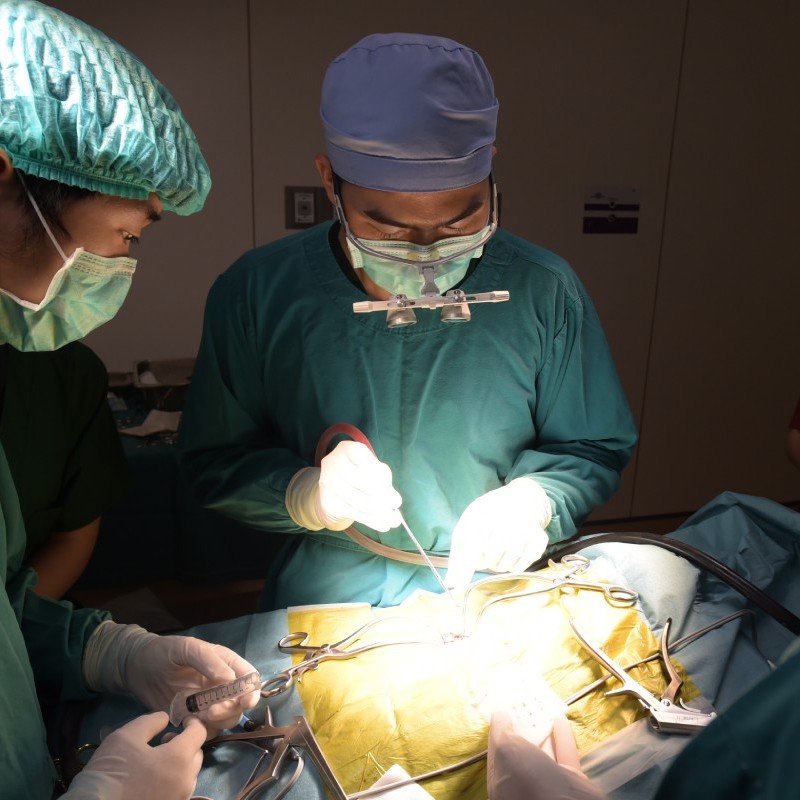When a person decides to have surgery, it is often the result of a long personal journey.
Pre-operation
Obesity surgery is currently the most efficient long-term medical treatment.
Our services for treating obesity
Discover below the different services that we offer:
-
-
We offer information and solutions for an informed and caring approach to obesity, promoting better health.
Pre-operative consultation
At first, it is essential to consider non-surgical solutions to treat obesity. If regular repetitive diets combined with regular sports activity have been inefficient then obesity surgery becomes possible, provided that other criteria, in particular the weight, are fulfilled.
It is important to note that the operation to treat obesity is not intended for individuals who have not tried anything beforehand. This type of surgery applies to people who have already worked hard to get there on their own but who urgently need outside help to start the next chapter of their life.
The surgery is not an easy solution. It is a tool to help the patient to reconcile with a balanced diet and to adopt healthier habits and to maintain them in the long term.
So that this tool is the most efficient as possible, it is the responsibility of the patient with the help of a health professionals they have chosen to prepare a preparatory plan prior to the surgical operation. The goal is to benefit from good preparation, good information concerning the psychological, dietetic and medical aspects of this surgery. Attending physicians, nutritionists, dieticians, psychologist, psychiatrists, internist doctor, anaesthesiologists, and perhaps others will be there, according to the needs, to support pre and postoperative management.
Thanks to this medical procedure, nutrition and psychological supervision, the patient must, before being operated on, identify the causes of your illness as best as possible so that so you can remedy it with the help of surgery and the advice of the professionals around you.
Finally, it is recommended to follow a protein diet one to two week before the operation so as to initiate weight loss.
What are the conditions of reimbursement?
The Belgian law stipulates in the “Moniteur Belge” that you have to meet various conditions to be reimbursed for the surgery to treat obesity are as follows:
- Must be a minimum of 18 years old
- Must have seriously tried several times to lose weight for at least one year
- Must have a BMI superior or equal to 40 or superior or equal to 35 if the patient, in addition to being obese, suffers from diabetes, hypertension (resistant to three treatments), sleep apnoea syndrome, or must undergo a new intervention due to complications undergone from a first bariatric operation
- The patient’s surgeon must send a standard notification form to the medical adviser of the insurer
- A register counsel study containing of all the bariatric surgeries whose modalities are established by the insurance committee must finally be held by the hospital in which the obese patient is admitted
If the criteria correspond to you and you are in order with health company and complementary insurance, you will be reimbursed a major part of your expenses incurred by the bariatric surgical intervention followed by a hospital stay in a double room. If you asked for an individual room, it’s different and the cost can be higher. The most prudent is to discuss it with your health care provider, your insurer and your physician to know exactly to what degree you can be reimbursed.
Complications you could have during or after the bariatric surgery
All surgery, no matter the type, could have complications. They could come from anaesthesia or the operation and could develop after the surgical intervention. Here we mention only the common complications and depending on the profile of the patient, some are more common than others. This is not an exhaustive list, and this should be discussed during the consultation with your doctor.
Complications linked to anaesthesia in obese patients
The risk of complications linked to anaesthesia in obese patients are for the following reasons:
- The obese patient’s cardio-vascular functions have been modified
- The obese patient’s respiratory functions are different
- The thromboembolic risk is increased
- Weight history such as high blood pressure, diabetes, or sleep apnoea should be taken into account
Complications linked to the bariatric intervention itself
These complications vary in function to the nature of the operation chosen by the patient and their surgeon, but some remain common, to any surgical procedure. Some issue can come quickly, other over long term. We will site only the most frequent complications.
- For the bypass gastric and the sleeve gastrectomy:poor heeling (fistula, abscess, peritonitis), perforation of a viscus, bleeding, pulmonary embolism, respiratory infection, oesophagi reflux (more frequent with the sleeve gastrectomy), ulcer, narrowing (stenosis) , vitamin deficiency (more frequent with the bypass), wound healing problem, hypoglycaemia, occlusions, hair loss
- For the gastric ring:most of the complications happen over the long term: ring slippage, throttling the stomach by the ring, oesophagus dilating (mega oesophagus), problems on the case
Contact us
Would you like to receive a quote or more information about our company? Contact us through the online form or by telephone. We will answer all your questions as quickly as possible.






